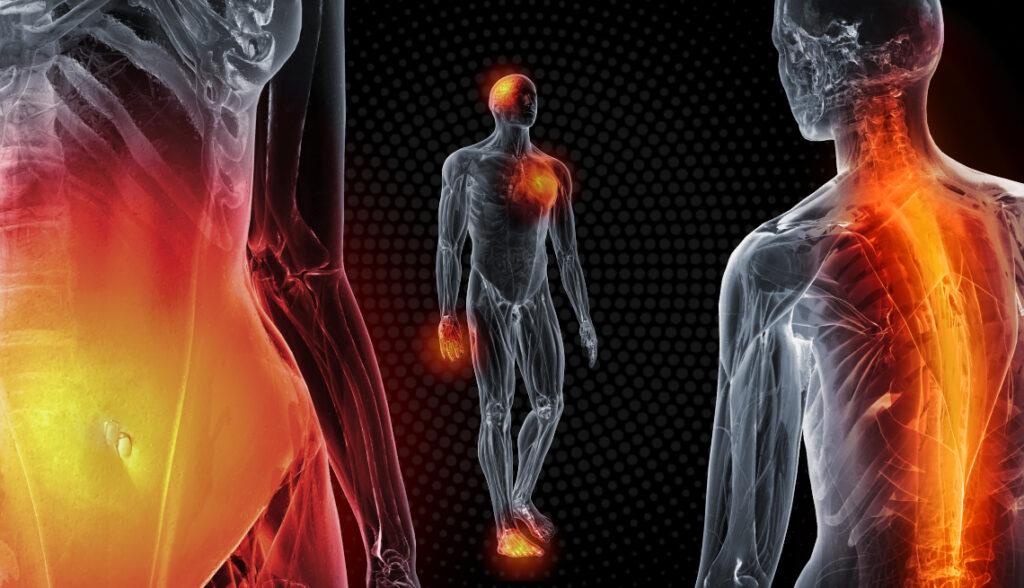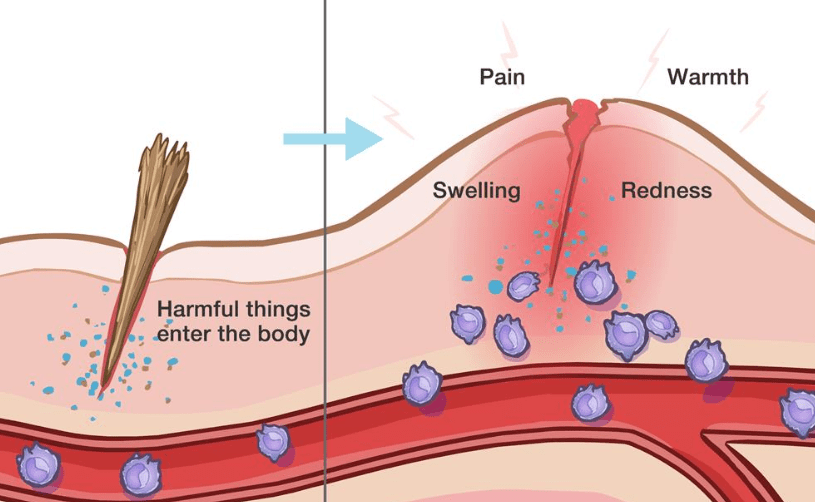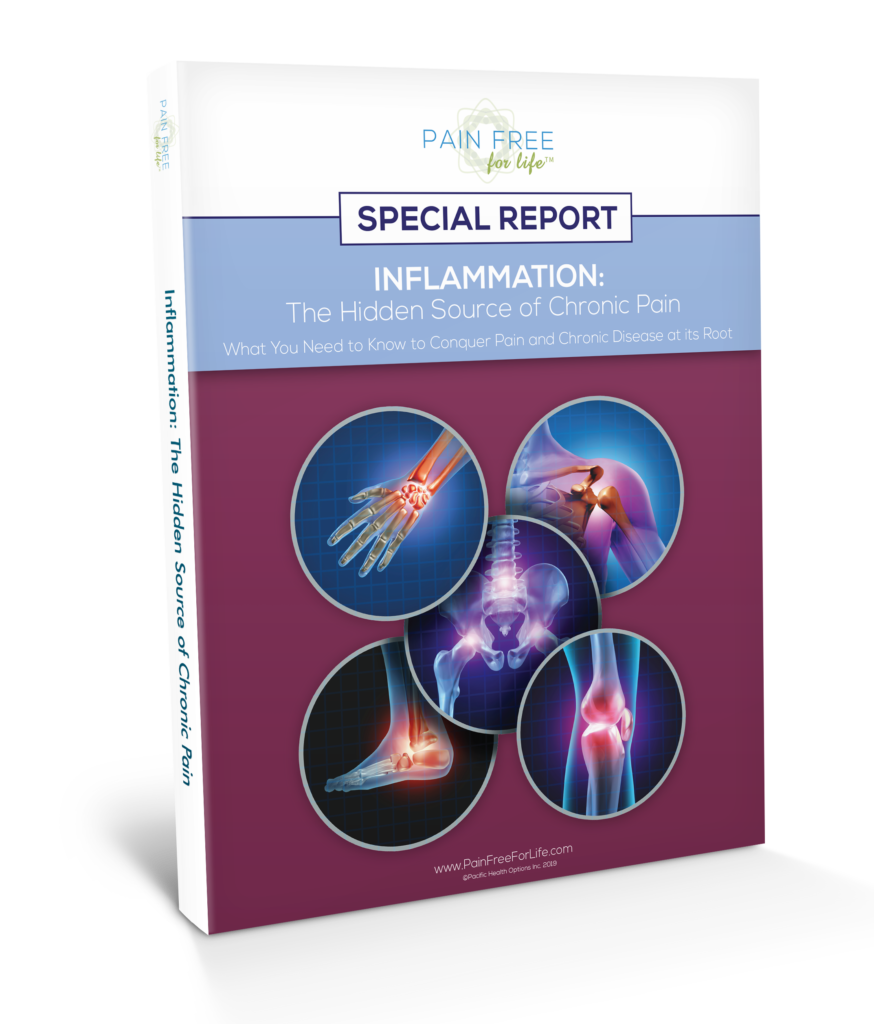
Aching, discomfort, stiffness, confusion, and an overall feeling of being “unwell”. Have you felt this way? Most of us have because these are the symptoms associated with inflammation in the body.
Inflammation is a vital function of our immune system and is essential to overcoming illness and injury. It is evidence that your body is working to heal. But what happens when inflammation persists longer than required for your body to heal? This is when inflammation starts doing more harm than good.
Let’s unpack the function of inflammation in our bodies, discover 8 causes of unnecessary inflammation in your body, and learn how to treat this condition naturally.
What is Inflammation?
As we discussed in our blog Inflammation: The Root Of All Disease, inflammation is a natural and necessary function of your body. As a response to an injury or a threat to your health, inflammation works to fight off invaders which may turn a small injury or illness into a debilitating situation. At the onset of inflammation, white blood cells are sent to the site of injury or infection and begin the healing process. This causes the telltale signs of acute inflammation.
4 Tell-Tale Signs of Inflammation
- Redness
- Heat
- Swelling
- Pain
Inflammation: The Helping Hand Can Hurt

The initial inflammatory response of the immune system is known as Acute Inflammation. Here, immune cells rapidly collect at the site of injury to kick start the healing process. Acute inflammation can be very helpful to the body and is caused by either physical, chemical, biological or psychological factors. A fair amount of pain and discomfort is associated with acute inflammation, even though it is helping your body, so it is important to seek treatment for these unpleasant side effects.
When acute inflammation persists, it becomes known as Chronic inflammation. Prolonged inflammation can lead to the development of a condition known as a chronic inflammatory disease, lasting months, years, or even a lifetime.
Patients with a chronic inflammatory disease typically experience a high incidence of pain, discomfort, and confusion on how to treat this condition. Pharmaceutical treatment options send the patient on a desperate search for relief, leaving them feeling defeated, unheard, disappointed and fatigued.
Untreated chronic inflammation can be very dangerous in the body. The National Cancer Institute found chronic inflammation can be a contributing factor in developing cancer. Long term damage to DNA due to chronic inflammation can create problems in the replication of cells associated with cancer. Examples of chronic inflammatory diseases include:
- Psoriasis
- Inflammatory bowel diseases like ulcerative colitis, or Crohn’s
- Rheumatoid arthritis
- Lupus
- Chronic obstructive pulmonary disease (COPD)
- And many more
7 Causes of Inflammation in Your Body
Now you know a little more about the function of inflammation in the body, you are left wondering, “what causes inflammation?” Let’s look at 8 of the most common triggers of inflammation:
- Physical and emotional stress– Stress is, unfortunately, a byproduct of living in the industrialized world. A 2012 study from Rockefeller University found increased stress triggers inflammation in the body, making it harder to fight off illness. Stressful workplaces, lack of sleep, and the western diet can make dealing with stress extremely difficult, sending you on a self-reinforcing loop of inflammation.
- Diet and Digestion– 70% of your immune system is in your gut! The correlation between gut health and immune responses like inflammation is becoming a popular topic to be studied by scientists, and new information is becoming available daily on this important connection. There is also growing evidence to support the idea that certain foods promote an inflammatory response. Refined sugars, processed meats, processed cereals, refined vegetable oils, and excessive use of alcohol are all triggers for inflammation. One study found daily use of alcohol increased the risk of rheumatoid arthritis, a chronic inflammatory disease, in women.
- Allergies– Research has found that allergic conditions now afflict roughly 25% of people in the developed world. When constantly exposed to an allergen you can develop chronic allergic inflammation. One example of chronic allergic inflammation is rhinosinusitis, a condition in which the sinuses become inflamed for months to years on end causing difficulty breathing.
- Hormone Imbalance– When we think of hormone imbalances, symptoms like hot flashes, changes in libido, acne, and unusual hair growth come to mind. But chronic pain and inflammation can be linked to an imbalance in the endocrine system, according to a 2014 German study. Hormonal birth control pills can contribute to the development of Crohn’s disease—an autoimmune inflammatory bowel condition— according to a Harvard study. Whether your hormone changes are naturally occurring or due to hormonal birth control, it is important to pay attention to the correlation between hormones and inflammation in the body.
- Chemicals– The world we live in is becoming a synthetic one. Almost every product you encounter contains chemicals that can be disruptive to your body, thus causing inflammation. Pesticides, preservatives, BPA, and phthalates are just a few of the chemicals to watch out for when considering inflammation.
- Physical Injury– Acute Inflammation is the initial response to physical injury. When you get a splinter in your finger the body sends white blood cells to the site of injury to start the healing process and stave off infection. As we previously discussed, this initial response is helpful, but pain and discomfort will often be present. If an injury doesn’t heal properly or becomes infected the inflammation can turn chronic.
- Infection– Infection throws your body’s immune system into hyperdrive, causing localized or systemic inflammation in the body. Infection and inflammation are two different processes of the body but often go hand in hand.
Conventional Treatments
Conventional medical treatments for inflammation typically revolve around an array of medications and prescription pills. These treatment options are largely ineffective because they simply mask the symptoms of inflammation, rather than resolving the condition causing it. Here are some of the medications doctors frequently prescribe for inflammatory issues:
Anti-inflammatory drugs– are known as nonsteroidal anti-inflammatory drugs or NSAIDs. They reduce inflammation by decreasing the production of prostaglandins. Prostaglandins are chemicals that promote inflammation in the body. This type of drug is found in almost every home and is widely used to treat day to day aches and pains. Just because a drug is sold over the counter doesn’t mean it’s always safe. Some of the side effects associated with NSAIDs include: ulcers, kidney problems, anemia, abnormal liver function, allergic reaction, headaches, and high blood pressure.
Corticosteroids (such as prednisone)- These drugs work by minimizing your immune system response. Patients have reported side effects including vomiting, loss of appetite, nausea, sweating, trouble sleeping, acne and allergic reaction. Prolonged use of corticosteroids can lead to further health problems. According to The Lupus Foundation of America, “Long-term prednisone use can cause diabetes in someone who has a tendency to be diabetic.”
DMARDs (disease-modifying antirheumatic drugs)– are used in the treatment and management of rheumatoid arthritis. They work by slowing down the progression of the disease. Persistent stomach upset, nausea and diarrhea are the most common side effects. More dangerous side effects include liver damage and decreased white blood cell count, which can lead to an increased risk of infection.
Natural Treatments for Inflammation
You’re in pain, you’re uncomfortable and you’ve tried the conventional method of treatment to no avail. If you’ve had enough of the side effects, it’s time to consider implementing a more natural course of action. Over the years, we’ve observed the following natural approaches to treating inflammation to be effective. Try incorporating these methods into your routine today:
- Anti-Inflammatory Foods– One of the easiest steps you can take to reducing inflammation is incorporating anti-inflammatory foods into your diet. Turmeric has been found by scientists to protect against inflammatory diseases. Ginger not only protects against inflammation, but it is heart-healthy and has been found to potentially decrease your risk of developing type 2 diabetes. Omega 3 fatty acids like those found in fish oil supplements and have been shown to be helpful if you are suffering from an uncomfortable inflammatory condition. There has also been research to show that virgin coconut oil, everyone’s favorite healthy fat, can aid in treating inflammation in the body.
- Make Gut Health a Priority– Taking probiotic supplements and eating probiotic-rich foods like sauerkraut, kimchi, yogurt, kefir, and raw milk cheese can support your gut health and thus your immune system.
- Get Moving!- Regular, light exercise is a great way to reduce inflammation. Just make sure to not overdo it, as you can make the problem worse if you push yourself too hard. For tips on some light exercises, check out our article: 8 Exercises for People in Pain.
- Hot/ Cold Therapy- Incorporating alternating hot and cold treatments such as heating pads and ice baths has proven helpful for many people who suffer from the aches and pains of daily inflammation.
- Resolve Inflammation with Microcurrent Therapy- When you get down to it, the only way to eliminate the pain associated with inflammation is to resolve it. Microcurrent therapy has been proven to eliminate the cause of inflammation in the body by working on a cellular level. When you are experiencing inflammation, your body’s electrical communication network is experiencing interference. This interference can be cleared and corrected through the application of microcurrent.
Resolve to Be Pain-Free Today
If you’re ready to grab life by the horns and resolve to finally live a life free of the aches, pain, confusion, and depression associated with inflammation it is time to access the wealth of information we’ve compiled for you. Our complimentary report guides you easily through the process of treating inflammation naturally at its root (including specific remedies and an entire section on microcurrent therapy), so you can start to live a comfortable, positive, and pain-free life.

Download Your Free Inflammation Report Today
Sources
https://www.cancer.gov/about-cancer/causes-prevention/risk/chronic-inflammation
https://www.pnas.org/content/109/16/5995
https://www.ncbi.nlm.nih.gov/pmc/articles/PMC2995846/
https://www.ncbi.nlm.nih.gov/pubmed/18650915
https://www.ncbi.nlm.nih.gov/pmc/articles/PMC3978663/
https://gut.bmj.com/content/62/8/1153
https://www.lupus.org/resources/can-prednisone-cause-diabetes
https://www.ncbi.nlm.nih.gov/pmc/articles/PMC5664031/
https://www.ncbi.nlm.nih.gov/pmc/articles/PMC3665023/
https://www.ncbi.nlm.nih.gov/pubmed/12480795
https://www.ncbi.nlm.nih.gov/m/pubmed/30359861/





